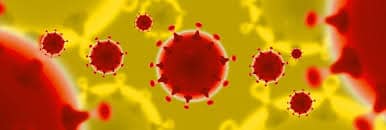How to combat virus attack?
Our immune system may become susceptible to attacks on pathogens in the year-round, but in most cases, colds and flu are usually seen in the colder winter months. So, How to combat virus attack?
Classrooms and workplaces are ideal places for the spread of various pathogens.
The following symptoms are familiar to all of us: an irritating sensation in the throat, which is followed by a much-dreaded sneeze, and the eyebrow of a colleague as he may be the next victim of infection. You must have definitely experienced that! It won’t be long until the whole office is coughing and tatted, and you will be stamped with the tag of enemy No. 1.
It is known that more than 100 viruses can cause colds, so it is not a wonder that the average adult is affected with viral diseases, 2-4 times, and children up to 9 times a year
 |
| How to combat virus attack? |
This is all the more reason to care for your immune system to be as strong as possible!
How to combat virus attack?
What is the first line of defence? Your diet. Whenever possible, fill your plate with fresh, seasonal fruits and vegetables.
The best foods that support the immune system are garlic, onion, olives, olive oil, beet, paprika, fresh herbs, chilli, sweet potatoes, carrots, apple, nuts, seeds, tofu, miso, lemon, lime, honey, blueberries… This list may continue. Generally speaking, try to bring the most colourful ingredients to your fork.
Eat fruits and vegetables, possibly raw, to prevent nutrient destruction during the heating process!
Intestinal health is also important. If you touch the virus, your immune system will use antibodies to bind the virus to you already in the airways and intestine. These antibodies prevent the movement of the virus into the body and deal with the virus to destroy it.
About 70% of your active immune cells are in the intestine and they don’t work very well without good bacteria. Think of them as your personal Defence force! Good bacteria can be obtained from natural yogurt, but if you plan to take good bacteria as a dietary supplement, look for a product that contains 5-25 billion of useful bacteria per day dose.
Specific vitamins and minerals may also help. Vitamin C is widely known for its immune-enhancing properties. Viruses are difficult to survive in an environment where there is abundant vitamin C. High dose vitamin C intake may provide protection against upper respiratory diseases and pneumonia.
Studies in animals have even found that vitamin C may be effective in some strains of the coronavirus virus. A lot of vitamin C is present in sweet peppers, watercress, cabbage, broccoli, cauliflower, strawberries, lemons, kiwi, melon, tomatoes. The levels of this vitamin in your body can also be kept high by consuming vitamin C supplements.
Vitamin D, which is found in eggs or in fatty fish (such as salmon or sardines), is also very useful in strengthening the immune system. Vitamin D supplementation by consuming the traces would be definitely in the form of D3 (as Cholecalciferol). The mineral zinc is also an important component for the immune system, which is often overlooked in humans. Zinc is found in oysters, crustacean, hard cheeses, eggs, whole cereals, lentils, avocados, leguminous vegetables, Brazilian nuts and Almonds.
You should also think of it as an increase in the antioxidants included in your menu that will help neutralize foreign intruders produced by “Free radicals”!
Both vitamin C and zinc are important antioxidants. Very good are anthocyanidins (found in blueberry, blackcurrant dark Grapes), carotenoids (in carrots, apricot, sweet potatoes, pumpkin and dark green leafy vegetables) and lycopene (which are found in tomatoes).
A very good source of antioxidants and essential oils is also grapefruit. If you consume grapefruit extract as a dietary supplement, choose the option that contains organic grapefruit.
What to refrain from?
If you smoke, stop it. We all know that smoking is harmful to health, but did you have any idea that smoking also weakens the immune system, making you more susceptible to colds and flu?
Reduce alcohol consumption to some units, do not consume it more than twice a week, and also reduce the consumption of refined sugar as it loads the immune system.





